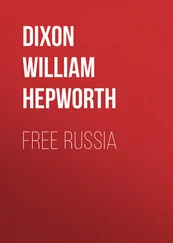Nikolai Nekrasov - Who Can Be Happy and Free in Russia?
Здесь есть возможность читать онлайн «Nikolai Nekrasov - Who Can Be Happy and Free in Russia?» весь текст электронной книги совершенно бесплатно (целиком полную версию без сокращений). В некоторых случаях можно слушать аудио, скачать через торрент в формате fb2 и присутствует краткое содержание. Год выпуска: 2005, Жанр: Поэзия, на английском языке. Описание произведения, (предисловие) а так же отзывы посетителей доступны на портале библиотеки ЛибКат.
- Название:Who Can Be Happy and Free in Russia?
- Автор:
- Жанр:
- Год:2005
- ISBN:нет данных
- Рейтинг книги:3 / 5. Голосов: 1
-
Избранное:Добавить в избранное
- Отзывы:
-
Ваша оценка:
- 60
- 1
- 2
- 3
- 4
- 5
Who Can Be Happy and Free in Russia?: краткое содержание, описание и аннотация
Предлагаем к чтению аннотацию, описание, краткое содержание или предисловие (зависит от того, что написал сам автор книги «Who Can Be Happy and Free in Russia?»). Если вы не нашли необходимую информацию о книге — напишите в комментариях, мы постараемся отыскать её.
Who Can Be Happy and Free in Russia? — читать онлайн бесплатно полную книгу (весь текст) целиком
Ниже представлен текст книги, разбитый по страницам. Система сохранения места последней прочитанной страницы, позволяет с удобством читать онлайн бесплатно книгу «Who Can Be Happy and Free in Russia?», без необходимости каждый раз заново искать на чём Вы остановились. Поставьте закладку, и сможете в любой момент перейти на страницу, на которой закончили чтение.
Интервал:
Закладка:
WHO CAN BE HAPPY AND FREE IN RUSSIA?
BY
NICHOLAS NEKRASSOV
Translated by Juliet M. Soskice
With an Introduction by Dr. David Soskice
NICHOLAS ALEXEIEVITCH NEKRASSOV
Born, near the town Vinitza, province of Podolia, November 22, 1821
Died, St. Petersburg, December 27, 1877.
'Who can be Happy and Free in Russia?' was first published in Russia in 1879. In 'The World's Classics' this translation was first published in 1917.
NICHOLAS NEKRASSOV: A SKETCH OF HIS LIFE
Western Europe has only lately begun to explore the rich domain of Russian literature, and is not yet acquainted with all even of its greatest figures. Treasures of untold beauty and priceless value, which for many decades have been enlarging and elevating the Russian mind, still await discovery here. Who in England, for instance, has heard the names of Saltykov, Uspensky, or Nekrassov? Yet Saltykov is the greatest of Russian satirists; Uspensky the greatest story-writer of the lives of the Russian toiling masses; while Nekrassov, "the poet of the people's sorrow," whose muse "of grief and vengeance" has supremely dominated the minds of the Russian educated classes for the last half century, is the sole and rightful heir of his two great predecessors, Pushkin and Lermontov.
Russia is a country still largely mysterious to the denizen of Western Europe, and the Russian peasant, the moujik , an impenetrable riddle to him. Of all the great Russian writers not one has contributed more to the interpretation of the enigmatical soul of the moujik than Russia's great poet, Nekrassov, in his life-work the national epic, Who can be Happy in Russia?
There are few literate persons in Russia who do not know whole pages of this poem by heart. It will live as long as Russian literature exists; and its artistic value as an instrument for the depiction of Russian nature and the soul of the Russian people can be compared only with that of the great epics of Homer with regard to the legendary life of ancient Greece.
Nekrassov seemed destined to dwell from his birth amid such surroundings as are necessary for the creation of a great national poet.
Nicholas Alexeievitch Nekrassov was the descendant of a noble family, which in former years had been very wealthy, but subsequently had lost the greater part of its estates. His father was an officer in the army, and in the course of his peregrinations from one end of the country to the other in the fulfilment of his military duties he became acquainted with a young Polish girl, the daughter of a wealthy Polish aristocrat. She was seventeen, a type of rare Polish beauty, and the handsome, dashing Russian officer at once fell madly in love with her. The parents of the girl, however, were horrified at the notion of marrying their daughter to a "Muscovite savage," and her father threatened her with his curse if ever again she held communication with her lover. So the matter was secretly arranged between the two, and during a ball which the young Polish beauty was attending she suddenly disappeared. Outside the house the lover waited with his sledge. They sped away, and were married at the first church they reached.
The bride, with her father's curse upon her, passed straight from her sheltered existence in her luxurious home to all the unsparing rigours of Russian camp-life. Bred in an atmosphere of maternal tenderness and Polish refinement she had now to share the life of her rough, uncultured Russian husband, to content herself with the shallow society of the wives of the camp officers, and soon to be crushed by the knowledge that the man for whom she had sacrificed everything was not even faithful to her.
During their travels, in 1821, Nicholas Nekrassov the future poet was born, and three years later his father left military service and settled in his estate in the Yaroslav Province, on the banks of the great river Volga, and close to the Vladimirsky highway, famous in Russian history as the road along which, for centuries, chained convicts had been driven from European Russia to the mines in Siberia. The old park of the manor, with its seven rippling brooklets and mysterious shadowy linden avenues more than a century old, filled with a dreamy murmur at the slightest stir of the breeze, stretched down to the mighty Volga, along the banks of which, during the long summer days, were heard the piteous, panting songs of the burlaki , the barge-towers, who drag the heavy, loaded barges up and down the river.
The rattling of the convicts' chains as they passed; the songs of the burlaki ; the pale, sorrowful face of his mother as she walked alone in the linden avenues of the garden, often shedding tears over a letter she read, which was headed by a coronet and written in a fine, delicate hand; the spreading green fields, the broad mighty river, the deep blue skies of Russia,—such were the reminiscences which Nekrassov retained from his earliest childhood. He loved his sad young mother with a childish passion, and in after years he was wont to relate how jealous he had been of that letter [1] Many years later, after his mother's death, Nekrassov found this letter among her papers. It was a letter written to her by her own mother after her flight and subsequent marriage. It announced to her her father's curse, and was filled with sad and bitter reproaches: "To whom have you entrusted your fate? For what country have you abandoned Poland, your Motherland? You, whose hand was sought, a priceless gift, by princes, have chosen a savage, ignorant, uncultured…. Forgive me, but my heart is bleeding…."
she read so often, which always seemed to fill her with a sorrow he could not understand, making her at moments even forget that he was near her.
The sight and knowledge of deep human suffering, framed in the soft voluptuous beauty of nature in central Russia, could not fail to sow the seed of future poetical powers in the soul of an emotional child. His mother, who had been bred on Shakespeare, Milton, and the other great poets and writers of the West, devoted her solitary life to the development of higher intellectual tendencies in her gifted little son. And from an early age he made attempts at verse. His mother has preserved for the world his first little poem, which he presented to her when he was seven years of age, with a little heading, roughly to the following effect:
My darling Mother, look at this,
I did the best I could in it,
Please read it through and tell me if
You think there's any good in it.
The early life of the little Nekrassov was passed amid a series of contrasting pictures. His father, when he had abandoned his military calling and settled upon his estate, became the Chief of the district police. He would take his son Nicholas with him in his trap as he drove from village to village in the fulfilment of his new duties. The continual change of scenery during their frequent journeys along country roads, through forests and valleys, past meadows and rivers, the various types of people they met with, broadened and developed the mind of little Nekrassov, just as the mind of the child Ruskin was formed and expanded during his journeys with his father. But Ruskin's education lacked features with which young Nekrassov on his journeys soon became familiar. While acquiring knowledge of life and accumulating impressions of the beauties of nature, Nekrassov listened, perforce, to the brutal, blustering speeches addressed by his father to the helpless, trembling peasants, and witnessed the cruel, degrading corporal punishments he inflicted upon them, while his eyes were speedily opened to his father's addiction to drinking, gambling, and debauchery. These experiences would most certainly have demoralised and depraved his childish mind had it not been for the powerful influence the refined and cultured mother had from the first exercised upon her son. The contrast between his parents was so startling that it could not fail to awaken the better side of the child's nature, and to imbue him with pure and healthy notions of the truer and higher ideals of humanity. In his poetical works of later years Nekrassov repeatedly returns to and dwells upon the memory of the sorrowful, sweet image of his mother. The gentle, beautiful lady, with her wealth of golden hair, with an expression of divine tenderness in her blue eyes and of infinite suffering upon her sensitive lips, remained for ever her son's ideal of womanhood. Later on, during years of manhood, in moments of the deepest moral suffering and despondency, it was always of her that he thought, her tenderness and spiritual consolation he recalled and for which he craved.
Читать дальшеИнтервал:
Закладка:
Похожие книги на «Who Can Be Happy and Free in Russia?»
Представляем Вашему вниманию похожие книги на «Who Can Be Happy and Free in Russia?» списком для выбора. Мы отобрали схожую по названию и смыслу литературу в надежде предоставить читателям больше вариантов отыскать новые, интересные, ещё непрочитанные произведения.
Обсуждение, отзывы о книге «Who Can Be Happy and Free in Russia?» и просто собственные мнения читателей. Оставьте ваши комментарии, напишите, что Вы думаете о произведении, его смысле или главных героях. Укажите что конкретно понравилось, а что нет, и почему Вы так считаете.











